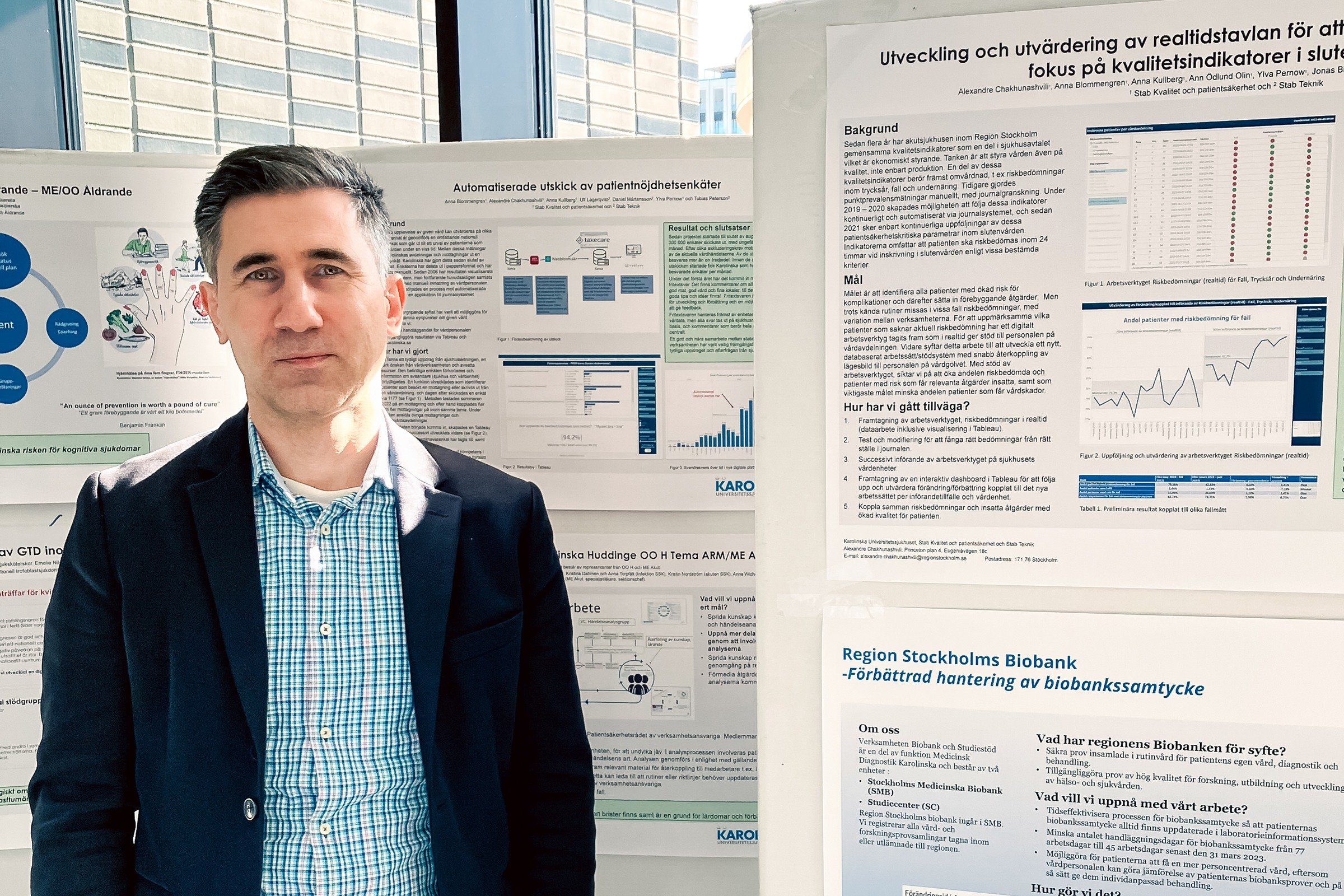Implementation of Patient Reported Outcomes

"It adds a new dimension"
– Generally, patients want to be more involved in their healthcare and treatment, and there are several ways to achieve this. Patient-reported outcome measures, PROM, enable this by allowing the patient to provide some of the knowledge they have about their clinical condition to the healthcare provider, says Alexandre.
– It is typically done through a comprehensive questionnaire where the patient answers about 20-30 questions and provides estimates on various aspects of their health status (e.g., pain, mobility, etc.). Such questionnaires have been developed in the H2O project for diabetes, inflammatory bowel disease and cancer. They will now be tested in practice, initially as part of a feasibility study and then, hopefully, in daily healthcare, Alexandre explains.
– Furthermore, the data collected through the PROM questionnaire can be used in research and development by aggregating it and potentially combining with traditional clinical and lab measurements. In other words, patient-reported outcome measures add a new dimension to the clinical picture that is otherwise based on clinical variables and laboratory values, says Alexandre.
Global event on PROM
On November 14th, an expert panel will discuss the importance of Patient Reported Outcome Measures in clinical practice and clinical trials in an event organized/hosted by H2O together with Aarhus University Hospital, the newest member of the European University Hospital Alliance (EUHA), in Copenhagen. One of the topics is how the use of patient-reported outcomes differ in clinical trials from clinical practice.
◾ ◾ ◾
What is the H20 project?
The Health Outcomes Observatory (H2O) is a 5-year EU-funded collaborative project involving 9 EUHA hospitals, several pharmaceutical companies and patient organizations. The Pathways & Outcomes (also known as LIVE) working group of EUHA is one of the initiators of the project which aims to establish a shared framework for collecting patient reported outcomes, using it as part of routine healthcare as well as in research and development. This shared framework empowers patients to express their most important concerns, enhances communication between patients and healthcare providers, and supports collaborative decision-making in healthcare.
A new standard
What's new with H2O is the aim to establish a common standard for collecting, storying, and analyzing patient reported outcomes data to enable its shared access for both clinical practice and research. Furthermore, this common standard will allow outcomes data to be compared across hospital boundaries as well as between different countries. The hope is that the result of the comparison will, among other things, serve as a 'trigger' for new development and improvement work, ultimately leading to improved healthcare quality.